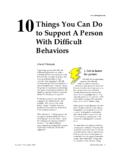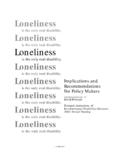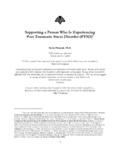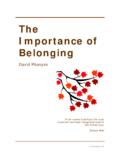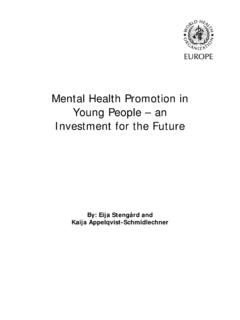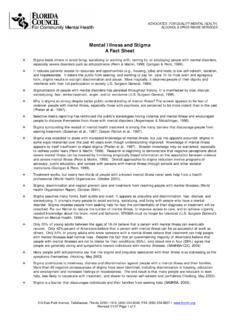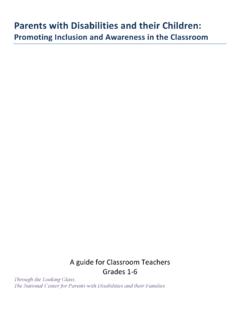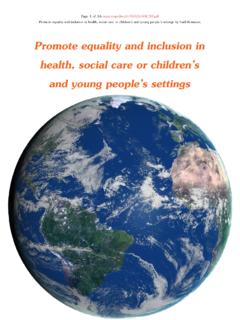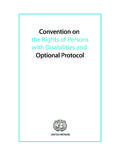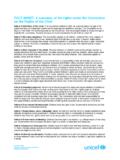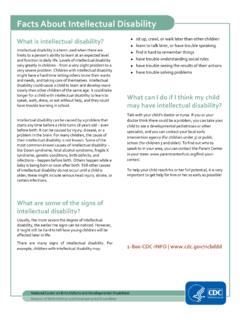Transcription of Notes for Parents - dimagine.com
1 When your child engages in difficult Notes for Parents David Pitonyak Several years ago I was asked to speak to a group of Parents in Vermont. The title of the presentation was "Supporting Children with Special Needs." Five minutes into my talk, a parent stood up and interrupted me. She insisted that I stop referring to her daughter as someone with "special needs" (I had been using the term a lot). "My daughter does not have special needs" she said. "My daughter has the same needs as anyone else. She has a need to live at home with her family. She has the need for a good education, friends, fun and a supportive family.
2 Sometimes you professionals in your efforts to provide special services to people forget the ordinary, everyday things that people need. She must have known that I was embarrassed. I'm sure I turned eighty shades of red as I muttered through the rest of my presentation. After it was over, she put her hand on my shoulder and said, "You'll be fine." As awkward as I felt about the evening, I felt grateful too. I learned one of the most important lessons I have ever learned as a professional: sometimes, in our efforts to provide "special" services to people , we often forget the ordinary things people need everyday: friends, family, interesting and fun things to do, safety and security, and a chance to make a contribution to the larger community (in short, a chance to belong).
3 What follows are 10 things to remember if your child, because he or she exhibits difficult behaviors, is at risk of not belonging. If you don't have the time or energy to read one more word, remember these two ideas: Taking care of yourself is one of the most important things you can do. If you don't, it will be very difficult to take care of anyone else. Remember that your child's problem behavior(s) has meaning. Finding out what your child needs is the first step in supporting your child, and the people who love your child, to change. 1. Be mom and dad first. Chris Heimerl writes, "Of all the hats you must wear advocate, care provider, therapist, Version 26 July 2007 teacher the most important is Mom and Dad.
4 Your love is the most powerful treatment any of us can imagine. If all the other stuff you have to do first interferes with being a parent, stop. Someone else can help with the other stuff, but no one else can be Mom and Dad." 2. Think of challenging behaviors as "messages" Difficult behaviors result from unmet needs. In a sense, difficult behaviors are "messages" which can tell us important things about your child and the quality of his or her life. Here are some examples of the kinds of "messages" your child may be conveying with their behavior: "I'm lonely.
5 " Michael's brother was invited over to a friend's house to watch Michael is never invited to the homes of children because he goes to a "special" school 35 miles from his neighborhood. Michael has no friends to play with . "I'm bored." Roberta's sister is a doctor at the local hospital. She has her own house and is her parent's pride and joy. Roberta works all day at a sheltered workshop where she packages plastic forks and knives. She lives at home and is tired of packaging. She wants to get a real job. Roberta's case manager says she day dreams too much. "I have no power.
6 " John likes to sit down on the sidewalk when the bus arrives to take him to school. His mother becomes very angry and tells him that there will be no desert when he gets home. John laughs when the bus driver threatens him with time out. "I don't feel safe." Conrad uses a wheel chair and is not able to defend himself from attacks. One of the people in his day program can be aggressive and Conrad worries that he will be hurt. "You don't value me." Gloria has a "severe reputation." people from all over the state have heard stories about her terrible tantrums. No one knows that she is a very caring person who worries about about her father s health.
7 The only part of Gloria people pay attention to is her problem behaviors. "I don't know how to tell you what I need." June did not know how to use words or sign to let other people know what she was thinking. She lives at home with her Parents where she has learned that the best way to get be seen is to bite your arms. It hurts, but it is the only thing that "works." "My ears hurt." Walter hit his ears with his fists. His job coach wanted to stop and wrote a behavior plan for "not hitting." Weeks later, at a scheduled Doctor's appointment, it was learned that Walter had a low-grade ear infection.
8 Anti-biotics cleared up the infection and Walter stopped hitting his ears. My body does not move like I want it to. Aron wanted to order a hamburger at a the restaurant, but his mouth kept saying, I want pizza. When the waiter brought him pizza, he became so upset he knocked it on the floor. Later, at home, he typed to his mom, I wanted a hamburger but I couldn t stop saying, I want pizza. Aron experiences differences from other people in the way his body moves (see Anne Donnellan and Martha Leary s book, Movement Differences and Diversity in Autism/Mental Retardation: Appreciating and Accommodating Persons with Communication and Behavior Challenges for additional information (ordering information on the last page).)
9 Obviously there are many needs that your child might be expressing through his or her behavior. A single behavior can "mean" many things. The important point is that difficult behaviors do not occur by accident, or because someone has a disability. Difficult behaviors are expressions of real and legitimate needs. All behavior, even if it is self-destructive, is "meaning-full." Ask yourself, "Is my vision for my child similar to the vision I have for my other children? (or the vision other Parents have for their children). When I think about what my child needs, do I focus on disability-related needs or do I think about things like friendships, fun, a sense of belonging?
10 " 3. Learn about person-centered planning. In the book, A Little Book About Person-Centered Planning, Connie Lyle O Brien, John O Brien, and Beth Mount describe the powerful differences between traditional approaches and person-centered planning. Unlike traditional approaches to planning, which ask questions like, What s wrong with you? and How can we fix you? , person-centered planning focuses on questions like What are your capacities and gifts and what supports do you need to express them? and What works well for you and what does not? and What are your visions and dreams of a brighter future and who will help you move toward that future?

